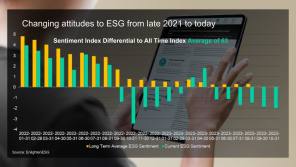

We have no doubt that tackling the Covid-19 pandemic will remain a top priority for the international community in 2021.
Despite the virus accelerating around key parts of the world, and officials (re)imposing restrictions to flatten the curve, there are reasons to be optimistic.
Recently, “white shoe” vaccine makers have released results from their late-stage studies suggesting their experimental vaccines are strongly effective, which paved the way for emergency use authorisation to innoculate the public, notably in the UK and in the United States.
Additionally, despite the material human, economic and financial costs attached to Covid-19, societies remain, albeit reluctantly, largely resilient and adaptable to the “stay-at-home” and “digital” economy.
The more we know about the virus, the more our approach to containing it will likely improve. After all, “time heals,” as the saying goes.
The vaccine is largely framed as “the” solution to arresting the spread of the pandemic.
Pharma arms race
While we can salute the scientific community for its resourcefulness and medical innovation prowess, an important question for investors remains unanswered: how can we prevent this unprecedented public health effort from turning into a “pharma arms race” to the detriment of the public good?
Covid-19 is a global, and indeed, public problem. Any solution should, by extension, be global and serve the public. In this regard, the solution must not fall victim to one of the key contradictions of capitalism.
The success of economic modernisation and technological innovation worldwide has brought about tremendous failures – including an increase in socioeconomic inequality and exploitation.
Despite the benefits that capitalism brings to growth, it structurally relies on underdevelopment to compensate for overdevelopment in order to exponentially grow.
It is, for example, this selective growth mechanism that paradoxically saves the world from total devastation on the environmental level - urbanisation and resource exploitation allowed us to modernize our societies.
But this modernisation has caused an upheaval of the biosphere, the magnitude of which we are just beginning to appreciate. That is why the opportunities emanating from biotechnological innovation to fight Covid-19 should not produce the contradictory result of hardening economic competition and sidelining less fortunate populations.
While key trends, including climate change, cybersecurity (including privacy), technological advancements, and demographic changes, were already altering the investment management landscape prior to Covid-19, we believe the virus’s escalation to a global pandemic will hasten the shift in mindset toward sustainable investing, notably amid the elevation of the social dimension of Environmental, Social and Governance (ESG).
Investment theory
Indeed, Covid-19 has altered the global economy, but it is affecting investment theory, too. There is a growing consensus among many investors, especially among millennials poised for the “Great Wealth Transfer" coming their way, that the so-called neoclassical economic theory must evolve past the sole focus of maximizing firm profits.
What is good for the long-term viability of our economic system and society can also lead to positive investment outcomes. As a result, investors are increasingly measuring company performance by more than just financial profit and loss. It is no longer about what makes a good stock but what makes a good company.
With regard to tackling Covid-19, investors do not need to make a binary distinction between impact and returns. Investors exposed to the healthcare theme in their portfolios have an opportunity to adapt to this global investment mentality shift and contribute to positive change.
These investors can enable growth in companies with current or projected net-positive impact and encourage improvement through active engagement with them. Concretely, this entails investing in innovative companies positioned for sustained above-average growth but whose products and services facilitate the access to medicines and health care services in both developed and emerging markets.
The question of lowering the cost of healthcare and medical patents will be of crucial importance in this area: how are companies balancing between protecting knowledge and the imperative of transferring knowledge and lifting costs in order to solve for global public health issues?
That is why, as part of their security selection process, investors should also formally engage with companies involved in developing vaccines or peripheral products and services with the objective to determine how their activities contribute to increasing accessibility and affordability, especially if these companies benefit from state financial support.
At the end of the run, if the Covid-19 vaccines are not affordable and accessible, then they will not be sustainable.
These two “impact mechanisms” – enabling growth and engagement – are not mutually exclusive.
In fact, they should overlap as each company’s ability to generate a positive impact on society is evaluated as they attain their fundamental growth objectives.
At the same time, however, to avoid “impact washing”, candidates for portfolio addition must be evaluated to ensure potentially material risks to impact are identified and adequately managed, using rigorous ESG analysis.
Lastly, comprehensible impact reporting is particularly important. Investors must be accountable and transparent as to what their capital allocation has achieved or seeks to achieve.
A strategy or emphasis on environmental, social and governance factors (ESG) may limit the investment opportunities available to a portfolio.
Therefore, the portfolio may underperform or perform differently than other portfolios that do not have an ESG investment focus.
A portfolio’s ESG investment focus may also result in the portfolio investing in securities or industry sectors that perform differently or maintain a different risk profile than the market generally or compared to underlying holdings that are not screened for ESG standards.
Guillaume Mascotto is head of ESG and investment stewardship at American Century Investments



